…what you can eat to beat them!
Muscle cramps happen when your muscles tense up and you can’t relax them. Whilst painful, usually you can treat them yourself. Exercise, dehydration, and menstruation are common causes. One way to stop cramps is to stretch or massage your muscles and to eat enough of these key nutrients: potassium, sodium, calcium, and magnesium. They’re called electrolytes, and you can find them in the following foods:
Bananas
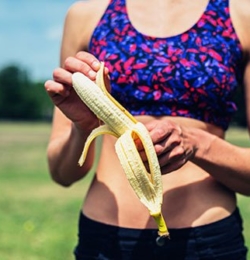 You probably already know that bananas are a good source of potassium. But they’ll also give you magnesium and calcium. That’s three out of four nutrients you need to ease muscle cramps – a popular, quick choice for cramp relief.
You probably already know that bananas are a good source of potassium. But they’ll also give you magnesium and calcium. That’s three out of four nutrients you need to ease muscle cramps – a popular, quick choice for cramp relief.
Sweet Potatoes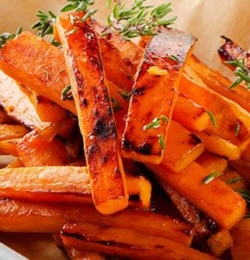
Like bananas, sweet potatoes give you potassium, calcium, and magnesium. Sweet potatoes get the win because they have about six times as much calcium as bananas. And it’s not just sweet potatoes: Regular potatoes and even pumpkins are good sources of all three nutrients. Plus, potatoes and pumpkins naturally have a lot of water in them, so they can help keep you hydrated.
Avocados
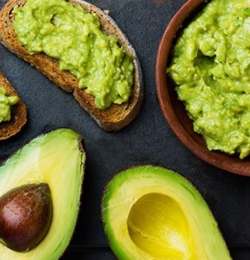 One creamy, green berry (yes, it’s really a berry!) has about 975 milligrams of potassium, twice as much as a sweet potato or banana. Potassium is important because it helps your muscles work and keeps your heart healthy. So swap out mayo on a sandwich with mashed avocado, or slice one onto your salad to help keep muscle cramps away. But remember that they have a lot of fat and calories, so keep that in mind!
One creamy, green berry (yes, it’s really a berry!) has about 975 milligrams of potassium, twice as much as a sweet potato or banana. Potassium is important because it helps your muscles work and keeps your heart healthy. So swap out mayo on a sandwich with mashed avocado, or slice one onto your salad to help keep muscle cramps away. But remember that they have a lot of fat and calories, so keep that in mind!
Beans and Lentils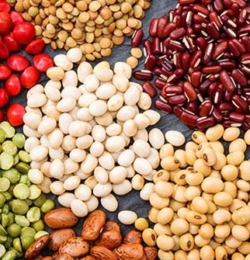
Legumes like beans and lentils are packed with magnesium. One cup of cooked lentils has about 71 milligrams of magnesium, and a cup of cooked black beans has almost double that with 120 milligrams. Plus, they’re high in fibre, and studies show that high-fibre foods can help ease menstrual cramps as well as help control your blood sugar and lower levels of “bad” LDL cholesterol.
Melons
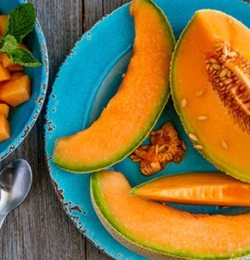 These fruits have it all: loads of potassium, a good amount of magnesium and calcium, a little sodium, and a lot of water. Sodium and water are key because as you exercise, your body flushes sodium out with your sweat. If you lose too much water, you’ll get dehydrated, and muscle cramps may happen. Eating a cup of cubed cantaloupe after a workout can help.
These fruits have it all: loads of potassium, a good amount of magnesium and calcium, a little sodium, and a lot of water. Sodium and water are key because as you exercise, your body flushes sodium out with your sweat. If you lose too much water, you’ll get dehydrated, and muscle cramps may happen. Eating a cup of cubed cantaloupe after a workout can help.
Watermelon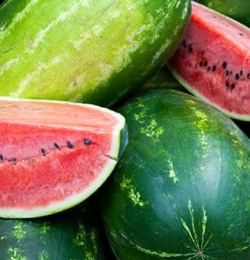
They’re about 90% water, so when you need foods that hydrate, a cup of watermelon will do it. Since it’s a melon, it’s also high in potassium, but not quite as high as others.
Milk
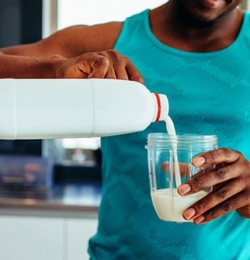 It’s a natural source of electrolytes like calcium, potassium, and sodium. It’s good for hydration. And it’s packed with protein, which helps repair muscle tissue after workouts. All of the above can help protect against muscle cramps.
It’s a natural source of electrolytes like calcium, potassium, and sodium. It’s good for hydration. And it’s packed with protein, which helps repair muscle tissue after workouts. All of the above can help protect against muscle cramps.
Seeds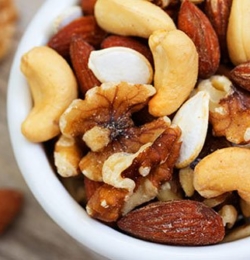
Like beans and lentils, nuts and seeds are a great source of magnesium. For example, 1 ounce of toasted sunflower seeds has about 37 milligrams of magnesium. And 1 ounce of roasted, salted almonds has double that. Many types of nuts and seeds have calcium and magnesium as well.
Tomatoes
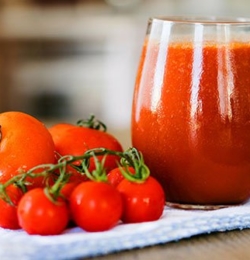 Tomatoes are high in potassium and water content. So if you drink 1 cup of tomato juice, you’ll get about 15% of your daily value of potassium. You’ll also give your body hydration to prevent muscle cramps from starting.
Tomatoes are high in potassium and water content. So if you drink 1 cup of tomato juice, you’ll get about 15% of your daily value of potassium. You’ll also give your body hydration to prevent muscle cramps from starting.
Source: Medicinenet.com
